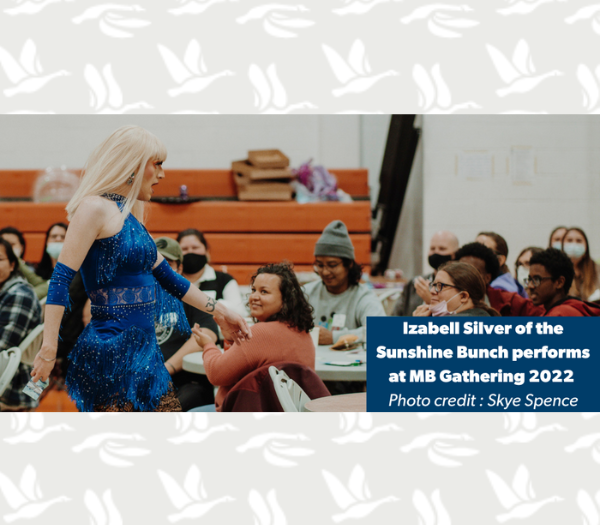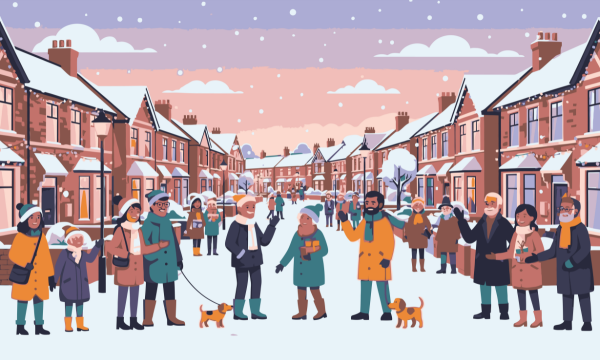The word “queer” contains multitudes. In the face of rigid, narrow, and individualistic social structures, queerness can convey fluidity, fullness, and collectivity. As a verb, “to queer” can mean to dismantle exclusionary practices in order to foster not only safety, but joy.
This Pride, we celebrate queerness in all of its radical potential, and we ask: what might it mean to queer community economic development (CED)?
Some might say that CED has always been queer. After all, it’s an alternative economic model based upon collective care. Plus, many CED strategies have deep roots in queer and trans communities, such as mutual aid and housing co-ops.
Unfortunately, these connections to queerness do not make the CED sector inherently safe or friendly. Much of the anti-2SLGBTQ+ exclusion present in the mainstream world of work pervades the social and solidarity economy as well. And with rainbow capitalism and pinkwashing on the rise, corporations and governments that pledge support to the 2SLGBTQ+ community often end up funneling resources to corporatized nonprofits, which does little to improve the the lives of queer folks who are BIPOC, poor/ working class, disabled, and/ or grappling with other forms of systemic oppression. Indeed, a lack of institutional funding and support continues to plague many organizations that provide vital frontline services to 2SLGBTQ+ folks.
These issues are manifestations of the broader systems of oppression targeting queer folks in Canada and around the world. However, an exclusive focus on the harms caused by anti-2SLGBTQ+ persecution can perpetuate the “unhappy queers” trope and even risks pathologizing queer folks as damaged. As Dr Eve Tuck says in a letter to communities, educators, and researchers who work with Indigenous communities, a damage-based framework “reinforces and reinscribes a one-dimensional notion of [certain] people as depleted, ruined, and hopeless.”
Instead, Dr Tuck suggests that we bring desire into central focus: “Desire, yes, accounts for the loss and despair, but also the hope, the visions, the wisdom of lived lives and communities. Desire is involved with the not yet and, at times, the not anymore.”
What would it mean to explore and center queer desires – for pleasure and abundance, for solidarity and security – in all CED work? What would this reshape and reframe? And how might all of us incorporate queer liberation as fundamental to everything we do?
This piece was featured in CCEDNet’s June 2023 national newsletter. If you liked it, be sure to subscribe to our mailing list.





